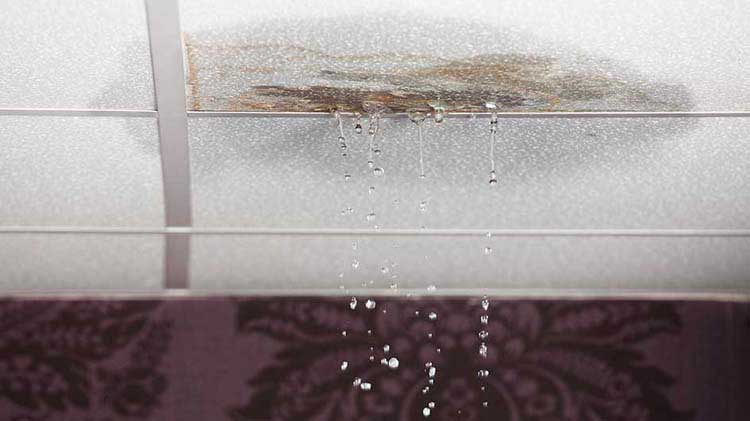The Six Most Common Sources of Water Leaks in Your Home: How to Identify and Address Them
The Six Most Common Sources of Water Leaks in Your Home: How to Identify and Address Them
Blog Article
The article author is making a few good pointers relating to Top Causes of Home Water Leaks overall in the article which follows.

Leakages not just cause waste of water yet can likewise cause unneeded damages to your home and promote unwanted organic development. By understanding and also looking for everyday scenarios that trigger leakages, you can secure your house from future leakages and unneeded damages.
Instant temperature adjustments.
Severe temperature modifications in our pipes can create them to expand and contract all of a sudden. This growth and tightening may cause fractures in the pipelines, especially if the temperature are listed below cold.
Corroded water supply
As time passes by, your plumbing system ages and rust such as corrosion may begin eating away the pipelines. This could be the cause of discoloration or bending on your water pipes. This calls for an inspection with your plumber instantly. Consider changing the pipelines because they are at a higher threat of corrosion than the more recent models if our plumbing system is old.
Faulty Pipeline Joints
The factor at which your pipelines attach is regularly the weakest link in the waterline. Pipeline joints can degrade over time, causing water leakages. The bulk of pipe joints are not quickly noticeable. If you have loud pipes that make ticking or banging sounds, specifically when the warm water is turned on, your pipeline joints are most likely under a lot of stress. It is advisable to have your plumber inspect your system once a year.
Intruding roots
The majority of water leakages begin outside your house instead of inside it. If you observe a sudden reduction in water pressure, claim in your faucet, require time to head out as well as analyze your lawn. You could see damp patches or sinkholes in your lawn, which could suggest that tree origins are getting into water lines causing water to seep out. You can have your plumber look for invasion, particularly if you have trees or shrubs near your residential or commercial property.
Poor Water Connectors
At times, a leak can be created by loose tubes as well as pipes that supply your devices. In situation of a water links leak, you may notice water running directly from the supply line or pools around your home appliances.
Obstructed Drains
Blocked drains might be frustrating and inconveniencing, but they can often end up creating an overflow causing rupture pipes. Keep eliminating any materials that may decrease your drains that could block them to stay clear of such inconveniences.
All the above are reasons for leaks but not all water leakages arise from plumbing leaks; some leaks could come from roofing leakages. All leakages should be repaired quickly to avoid water damage.
Leaks not just cause waste of water yet can likewise cause unneeded damage to your residence and also promote unwanted natural development. By comprehending and looking for everyday circumstances that create leakages, you can secure your residence from future leakages and unneeded damages. Today, we will look at 6 leakage triggers that may be triggering your pipes to trickle.
At times, a leak can be caused by loose hose pipes and pipelines that supply your appliances. In situation of a water links leakage, you might observe water running straight from the supply line or puddles around your home appliances.
How To Check For Water Leak In Your Home
How To Check for Leaks
The average household's leaks can account for nearly 10,000 gallons of water wasted every year and ten percent of homes have leaks that waste 90 gallons or more per day. Common types of leaks found in the home are worn toilet flappers, dripping faucets, and other leaking valves. These types of leaks are often easy to fix, requiring only a few tools and hardware that can pay for themselves in water savings. Fixing easily corrected household water leaks can save homeowners about 10 percent on their water bills.
To check for leaks in your home, you first need to determine whether you're wasting water and then identify the source of the leak. Here are some tips for finding leaks:
Take a look at your water usage during a colder month, such as January or February. If a family of four exceeds 12,000 gallons per month, there are serious leaks.
Check your water meter before and after a two-hour period when no water is being used. If the meter changes at all, you probably have a leak.
Identify toilet leaks by placing a drop of food coloring in the toilet tank. If any color shows up in the bowl after 10 minutes, you have a leak. (Be sure to flush immediately after the experiment to avoid staining the tank.)
Examine faucet gaskets and pipe fittings for any water on the outside of the pipe to check for surface leaks.
Undetected water leaks can happen without the home or business owner even realizing. If you suspect a water leak, but not able to find the source. It is time to contact a professional water leak detection service, The Leak Doctor.
How To Find a Water Leak In Your Home
https://www.leakdoctor.com/blog/How-To-Check-For-Water-Leak-In-Your-Home_AE197.html

Do you really like reading up on Common Water Leaks In House? Write a review further down. We'd be glad to find out your thoughts about this article. We hope that you come back again soon. Sharing is caring. You won't know, you could be doing someone a favor. We take joy in reading our article about How Fast Water Damage Can Ruin Your Home.
Visit Website Report this page